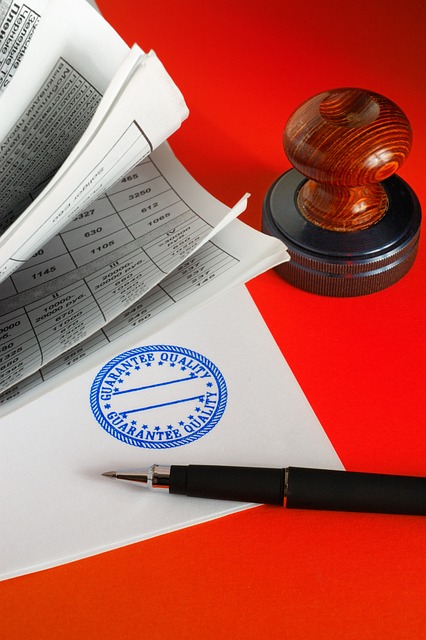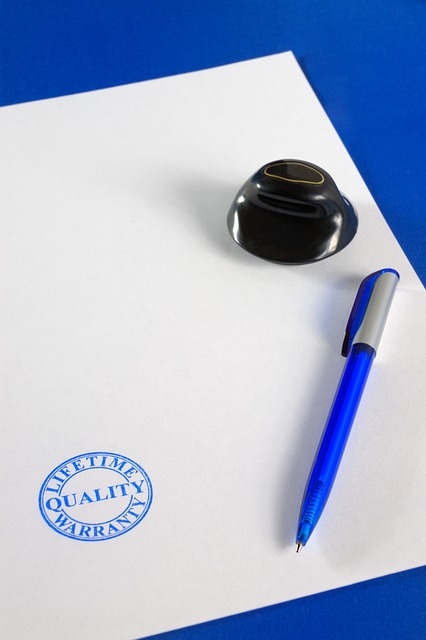UK translation services are subject to a comprehensive regulatory framework that mandates specific licenses and permits to guarantee the authenticity, legal compliance, and high-quality standards of translated materials. These credentials certify the expertise of professional translators who are essential for maintaining accuracy in sensitive sectors such as law, medicine, technology, and commerce. The UK enforces strict regulations to ensure that translations are precise, appropriate, and legally sound, with stringent standards set by ISO 17100 and adherence to the UK General Data Protection Regulation (UK GDPR) for handling personal data. Translators often require additional certifications from bodies like the Institute of Translation and Interpreting (ITI) or the Chartered Institute of Linguists (CIOL), which underscore their proficiency in both language nuances and specialized subject matter. To legally operate in the UK, translation businesses must register with Her Majesty's Revenue and Customs (HMRC) and adhere to GDPR principles to protect sensitive data. This ensures that UK translation services provided are not only compliant with legal requirements but also meet client expectations for precision and confidentiality in specialized content translations.
navigating the complexities of professional translation within the UK’s regulatory framework is paramount for both agencies and individual translators. This article elucidates the essential licenses and permits required to operate legally and ethically within this domain. From understanding the importance of these credentials to registering with HM Revenue & Customs, we will guide you through each step. Additionally, we explore the significance of professional certifications from bodies like the Chartered Institute of Linguists and the Institute of Translation and Interpreting. With a focus on compliance with data protection under GDPR and the specific needs for technical and medical translation services, this comprehensive overview ensures that you are well-equipped to navigate the UK’s licensing landscape.
- Understanding the Necessity of Licenses and Permits in UK Translation Services
- Overview of Key Licenses for Translation Agencies in the UK
- Navigating the Permit Requirements for Freelance Translators in the UK
- The Role of the Chartered Institute of Linguists (CIOL) and Institute of Translation and Interpreting (ITI) Certifications
- Registering Your Translation Business with HM Revenue & Customs (HMRC)
- Compliance with Data Protection: GDPR and Its Implications for Translators in the UK
- Specialized Permits for Technical and Medical Translation Services in the UK
Understanding the Necessity of Licenses and Permits in UK Translation Services

When engaging with UK translation services, it’s crucial to navigate the intricate web of licenses and permits that govern the industry. These legal documents are not mere formalities but essential components that ensure the integrity and authenticity of translated content. The UK’s stringent regulations require professional translators to possess specific licenses, which validate their expertise and proficiency in language translation. This regulatory framework safeguards clients by assuring that their translations are carried out by individuals who meet the high standards set by authoritative bodies. Moreover, certain permits may be necessary for translators to access and handle sensitive or classified documents, thereby maintaining national security and confidentiality. UK translation services that operate with these licenses and permits are equipped to provide legal, accurate, and reliable translations across various sectors, including legal, medical, technical, and commercial fields. This commitment to professionalism and adherence to legal requirements is what distinguishes UK translation services from the rest, ensuring that every word translated is not only correct in language but also contextually and legally sound.
Overview of Key Licenses for Translation Agencies in the UK

UK translation services operate within a framework of regulations that govern their activities, ensuring the provision of high-standard translations to clients both domestically and internationally. Professionals in this field must be adept at navigating the various licenses and permits required to offer their services legally and ethically. A key license for translation agencies in the UK is the ISO 17100 certification, which sets forth the standards for translation services and requires translators to demonstrate language proficiency and subject-matter expertise. Additionally, translation agencies may need to register with the Information Commissioner’s Office (ICO) if they process personal data, adhering to the UK General Data Protection Regulation (UK GDPR). This ensures that client confidentiality is maintained and that data protection laws are upheld.
Furthermore, depending on the nature of their services, translation agencies may require additional licenses specific to their industry or the type of content they handle. For instance, agencies dealing with legal documents might need to employ translators who are accredited by the relevant professional bodies, such as the Institute of Translation and Interpreting (ITI) or the Chartered Institute of Linguists (CIOL). These accreditations often necessitate a combination of experience, testing, and ongoing professional development. By ensuring that all translators meet these high standards, UK translation services can offer legally recognized translations, which are crucial for official purposes such as legal proceedings, immigration applications, and commercial transactions.
Navigating the Permit Requirements for Freelance Translators in the UK

When freelance translators in the UK seek to offer their services professionally, understanding and navigating the permit requirements is a pivotal step. Unlike some European countries where translation activities may fall under freedom of establishment and freedom to provide services, the UK has specific guidelines. Freelancers must ensure they are legally compliant with the licensing framework set forth by the Office of Qualifications and Examinations Regulation (Ofqual) for certain types of qualification-based translations. It is imperative for translators to ascertain whether their translation work requires a regulated qualification, as this will dictate the need for official accreditation.
For those providing UK translation services, the route to professional status can be multifaceted. While some translations may not necessitate formal licensing, translators often benefit from joining professional bodies such as the Institute of Translation and Interpreting (ITI) or the Chartered Institute of Linguists (CIOL). These organisations set high standards for their members and offer a pathway to gaining recognition for one’s translation expertise. Additionally, they provide resources, support, and networking opportunities that are invaluable for freelance translators looking to establish themselves within the UK’s regulated marketplace. Ensuring compliance with these bodies, alongside adhering to the UK’s licensing requirements, is essential for freelancers aiming to offer top-tier translation services in a competitive landscape.
The Role of the Chartered Institute of Linguists (CIOL) and Institute of Translation and Interpreting (ITI) Certifications

When it comes to translating UK licenses and permits, professional accreditation plays a pivotal role in ensuring accuracy and compliance with legal standards. The Chartered Institute of Linguists (CIOL) and the Institute of Translation and Interpreting (ITI) are two prestigious bodies that set the benchmark for language professionals worldwide. CIOL, as a chartered organisation, represents the interests of individual professionals and the language industry at large. It offers a comprehensive range of qualifications, including the Certified Member (CIOL CertT) and Chartered Linguist (CL) status, which are highly regarded in the translation community. These certifications attest to the linguist’s proficiency not just in language but also in the nuances of legal terminology, making them exceptionally suited for the precise work of translating UK licenses and permits.
Similarly, the ITI, a leading association for professional translators and interpreters, provides another layer of validation. ITI membership is a testament to translators’ expertise and commitment to maintaining high ethical standards. The ITI also offers qualifications such as the MITI (Member of the Institute of Translation & Interpreting) and FITI (Fellow of the Institute of Translation & Interpreting), which are specifically tailored to ensure that members have the necessary skills to perform UK translation services with the utmost precision. Both CIOL and ITI certifications are instrumental in guaranteeing that translations of licenses and permits from the UK to another language or vice versa are not only accurate but also culturally appropriate, thereby upholding legal validity and ensuring seamless international transactions.
Registering Your Translation Business with HM Revenue & Customs (HMRC)

When expanding your UK translation services into a formal business venture, it is imperative to ensure legal compliance by registering with Her Majesty’s Revenue and Customs (HMRC). This registration process not only legitimizes your operation within the UK market but also aligns with the local legal framework that governs businesses. As you delve into the realm of professional translation services, your business will handle sensitive and often confidential material, which underscores the necessity for a robust legal foundation. Registering with HMRC is a critical step in this journey, as it allows you to operate legally, comply with tax obligations, and access the support available to businesses in the UK. This registration process grants your translation services the licences and permits required to engage with clients and offer your expertise across various industries. It ensures that your business adheres to the UK’s financial and legal standards, providing a level of trust and credibility to potential clients who are looking for reliable UK translation services. By taking this proactive step, you affirm your commitment to professionalism and ethical conduct, which is essential in a field that deals with the nuances of language and culture.
Compliance with Data Protection: GDPR and Its Implications for Translators in the UK

When navigating the realm of translating UK licenses and permits, compliance with data protection regulations is paramount. The General Data Protection Regulation (GDPR), which came into effect in May 2018, has significantly shaped the way personal data is processed and protected within the European Union, including the United Kingdom. As professionals providing UK translation services, translators must adhere to GDPR principles to ensure the confidentiality and integrity of personal data during their translation processes. This means implementing robust data protection measures, from secure data storage solutions to safeguarding against unauthorized access. Translators must understand the implications of mishandling sensitive information, which could lead to legal ramifications and a loss of trust among clients. In the context of translating licenses and permits, the accuracy and discretion of the translator are crucial, as these documents often contain highly personal and confidential details. Thus, professional UK translation services must incorporate GDPR compliance into their service framework to maintain client confidence and legal conformity. By doing so, they not only protect the data subjects but also uphold the reputation and reliability of their services in the international marketplace.
Specialized Permits for Technical and Medical Translation Services in the UK

In the United Kingdom, the field of professional translation services encompasses a variety of specialized permits that are crucial for practitioners offering technical and medical translation services. These licenses and permits ensure that translators adhere to strict standards of accuracy and confidentiality, which are paramount when dealing with sensitive or complex information. For instance, medical translation services require translators to possess certifications that validate their expertise in both the language pair they work with and the specialized knowledge pertinent to medical terminology. This certification often involves rigorous testing and an understanding of the ethical considerations inherent in handling medical data. Similarly, technical translation services demand a deep comprehension of the subject matter, be it engineering, IT, or scientific content, for which translators must undergo specific training and may need to obtain licenses that verify their competency in these areas. The UK’s translation services are regulated to maintain high-quality standards across all sectors, thereby ensuring that translated documents meet both legal requirements and the professional expectations of clients.
The regulatory framework governing translation services in the UK is designed to uphold the integrity and reliability of translations, especially within niche fields like medicine and technology. Professional bodies, such as the Institute of Translation & Interpreting (ITI) and the Chartered Institute of Linguists (CIOL), set out guidelines and best practices for their members, who are often required to hold relevant licenses and permits. These credentials serve as a testament to the translator’s proficiency and trustworthiness. As such, when seeking translation services in the UK, clients can be assured that licensed professionals will deliver accurate translations, thereby facilitating effective communication across linguistic barriers in highly specialized sectors.
When engaging in translation services within the UK, it is imperative to navigate the complex array of licenses and permits that govern professional practice. This article has illuminated the critical aspects, from the essential certifications provided by the Chartered Institute of Linguists and Institute of Translation and Interpreting to the detailed compliance with Data Protection under GDPR. For both translation agencies and freelance translators alike, understanding the UK’s regulatory framework ensures professional integrity and client trust. Registering with HM Revenue & Customs is a pivotal step for businesses, while adherence to permit requirements underscores a commitment to quality and legality in one’s practice. Whether focusing on general translation or specializing in technical and medical sectors, the guidance offered herein serves as a cornerstone for compliance within the UK’s translation industry. Professionals are encouraged to thoroughly review these essential elements to operate with full legitimacy and efficacy in the UK translation services landscape.
